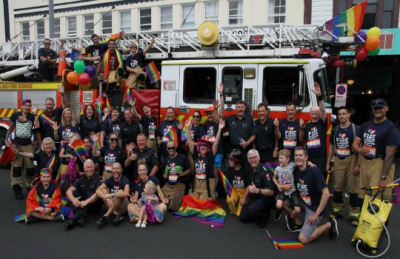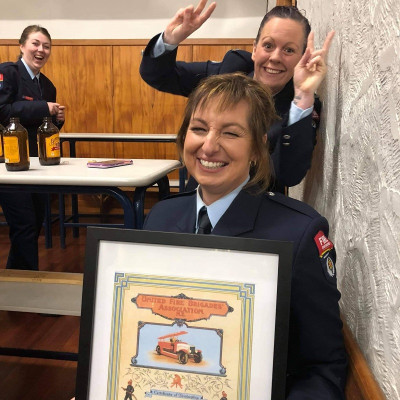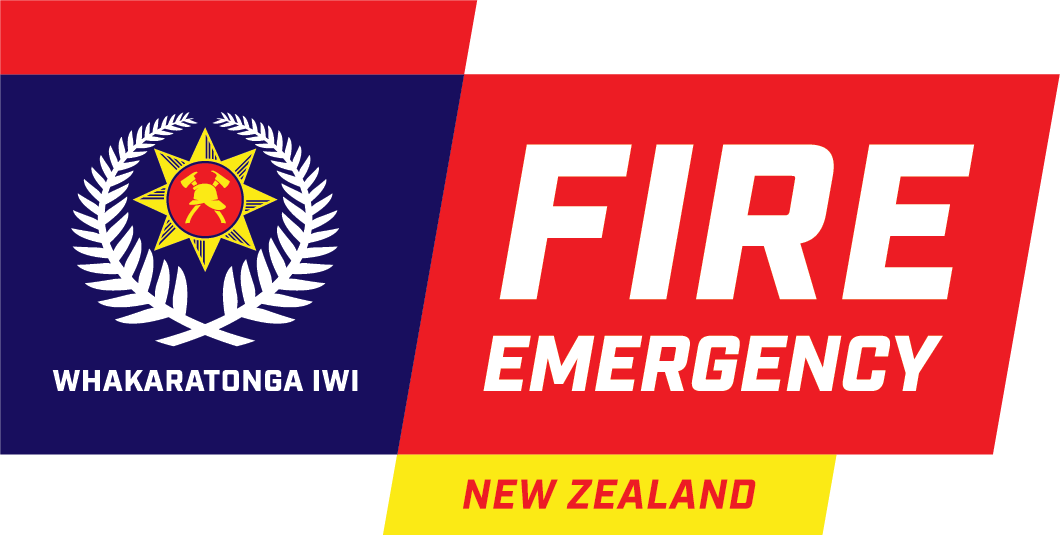Women in firefighting

Fire and Emergency personnel take pride in being part of the Pride Parade 2018
Women and diversity
Fire and Emergency New Zealand is committed to increasing diversity at all levels of the organisation, including employing more women in operational roles.
Research demonstrates that diverse groups are more productive and capable of reaching more creative solutions to complex problems. Employing people from different backgrounds, with different life experiences, learning styles, cultures and gender enriches our work environment and may add to our situational awareness on the fire ground or emergency incidents.
Our organisation is much more effective when we reflect the communities we serve. Language and cultural barriers are minimised when employees are multilingual and culturally diverse. People are more likely to trust us and feel safe when they can identify with us, and potentially volatile situations can be averted.

Kerry "Angel" McSaveney from Wellington Rural enjoying a different office for the day
No two days "at the office" are the same
Fire and Emergency's firefighters provide an emergency response to everything the Police and Ambulance don’t do, as well as assisting both these agencies as well. Other duties include all the non-emergency work we do, education on school visits, installing smoke alarms, area and building visits for pre-incident planning, fire risk management, water testing, on the job training or equipment maintenance, the list goes on and on.
Embark on a fulfilling career
Whether you serve your community as a career or volunteer firefighter in an urban or rural firefighting crew you will be entering an exciting time in your life.
Ongoing personal development is encouraged with opportunities to attend practice evenings, distance learning, formal courses and progression through the ranks. There are also opportunities to take on specialist roles, such as Urban Search and Rescue, BA maintenance, or training.
Being an operational firefighter is not the only way to be involved. There are a myriad of opportunities to help out in the volunteer sector in support roles such as administration, or the more active operational support role. There are non-operational paid careers available in Fire and Emergency, such as communication centre operator, administration or fire risk management.

Lynda, Summer and Loretta from Tuatapere
Be part of a team
Teamwork is an essential part of firefighting, and the challenges faced on the job means trusting and looking after each other is critical. Comradeship and support is an integral and strong part of the culture. It is a huge extended family of diverse individuals united in a common purpose.
For those with a competitive streak, skills can be honed through participating in a range of fire and emergency-related team and individual competitions and challenges.
Contribute to your local community
Volunteering at your local brigade provides a wide range of opportunities for you to positively contribute to your community. Providing advice and education about fire safety, visiting schools and pre-schools, fitting smoke alarms and talking or providing demonstrations at events.
Weblinks
- Stuff.co.nz news article: Great-grandmother Penny Stewart loves fighting fires(external link)
- YouTube video: Station Officer Kate Hill on why firefighting is a good job choice for young women considering career options(external link)
- Stuff.co.nz news article: Woman chief blazes the way at Riverton(external link)
- NewsWire.co.nz article: The New Zealand fire service is on the lookout for a few good women(external link)
- Otago Daily Times article: Women satisfy burning ambition in brigades(external link)
Last modified:
